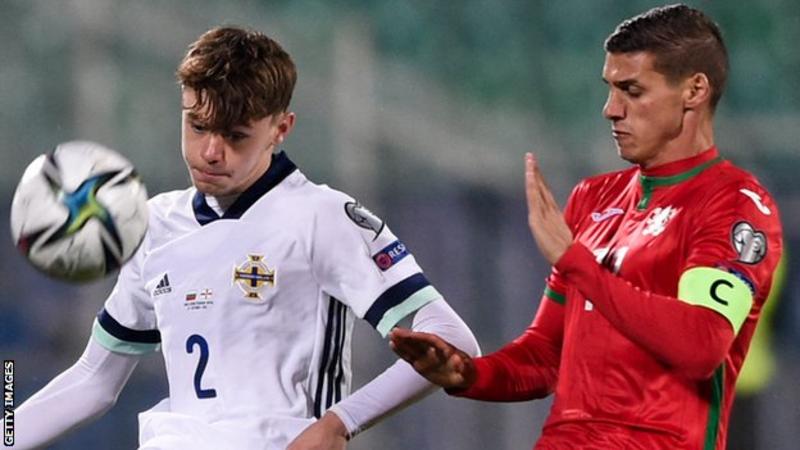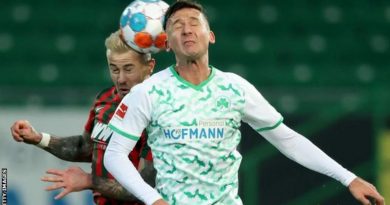Where are Northern Ireland heading? Key questions after Bulgaria collapse
Where are Northern Ireland heading? Key questions after Bulgaria collapse
The feeling of outrage at a referee’s decision was an all too familiar one for Northern Ireland after the Switzerland defeat.
What was less familiar in more recent years – if not traditionally – is having no realistic hope of qualifying for a finals with three group games left to play.
However, that hopelessness will have turned to dejection for many supporters after an abject second-half performance saw Ian Baraclough’s injury-hit side surrender a 1-0 half-time lead in a painful 2-1 defeat by Bulgaria in Sofia on Tuesday night.
The nature of the loss, and the toothless nature of the second-half showing in particular, was in stark contrast to the positivity that abounded after two wins and a draw in September.
Baraclough is very much a ‘glass-half-full’ manager, but there will likely be questions on supporters’ minds about exactly where Northern Ireland are with Lithuania and Italy coming to Windsor Park in November to round off this World Cup qualifying campaign.
It has never dominated the build-up to matches – a series of player injuries and the importance of what was at stake in the qualifiers saw to that – but the question of whether Baraclough will be offered a new contract is one that has been part of the conversation before the past two international camps.
The former Motherwell boss signed an 18-month deal when he stepped up from the Under-21s to replace Michael O’Neill in June 2020, and it is perhaps only natural that the topic would come up.
Unsurprisingly, the 50-year-old has made clear his intentions to remain in position, saying that the squad is at the start of a new cycle with a number of young players having been added to the panel, and that he is building towards qualification for the 2024 Euros.
Baraclough has referenced the need to “swell the pool of players” a number of times and can point to the emergence of Daniel Ballard, Ali McCann, Ciaron Brown and Conor Bradley as strong evidence of that.
It could also be plausibly argued that his in-depth knowledge of the players coming through at Under-21 level would point to his appointment having always been made with the future in mind, therefore to cut ties now would be a suggest a disjointed approach by the Irish FA.
The counter argument could be that Baraclough failed in his initial remit of successfully negotiating the Euro 2020 play-offs, and has followed that up by falling considerably short in World Cup qualifying, albeit while having to cope with the loss of important players.
Yes, the Jamal Lewis red card in Geneva was a shocking decision and significantly impacted the game, but there are no such excuses for the dismal draw at home to Bulgaria in March nor Tuesday night’s second-half collapse. Widening the analysis out across his entire reign, Baraclough has won just four of his 18 games in charge, two of which were friendlies.
Steven Davis has long since secured his place at the centre of any conversation about Northern Ireland’s most legendary players, yet the 36-year-old record British caps holder is as enthusiastic now about representing his country as he was when he made his international debut in 2005.
The Rangers midfielder is still an effective force in Northern Ireland’s midfield as well, having modified his game to play in a deeper role and benefitting from the energy of players such as Paddy McNair, Jordan Thompson and more recently McCann either side of him.
However, supporters will no doubt be wondering if the man who has been a talismanic leader for so long will commit to another Euros qualifying campaign for which he will be 39 when the finals come along.




